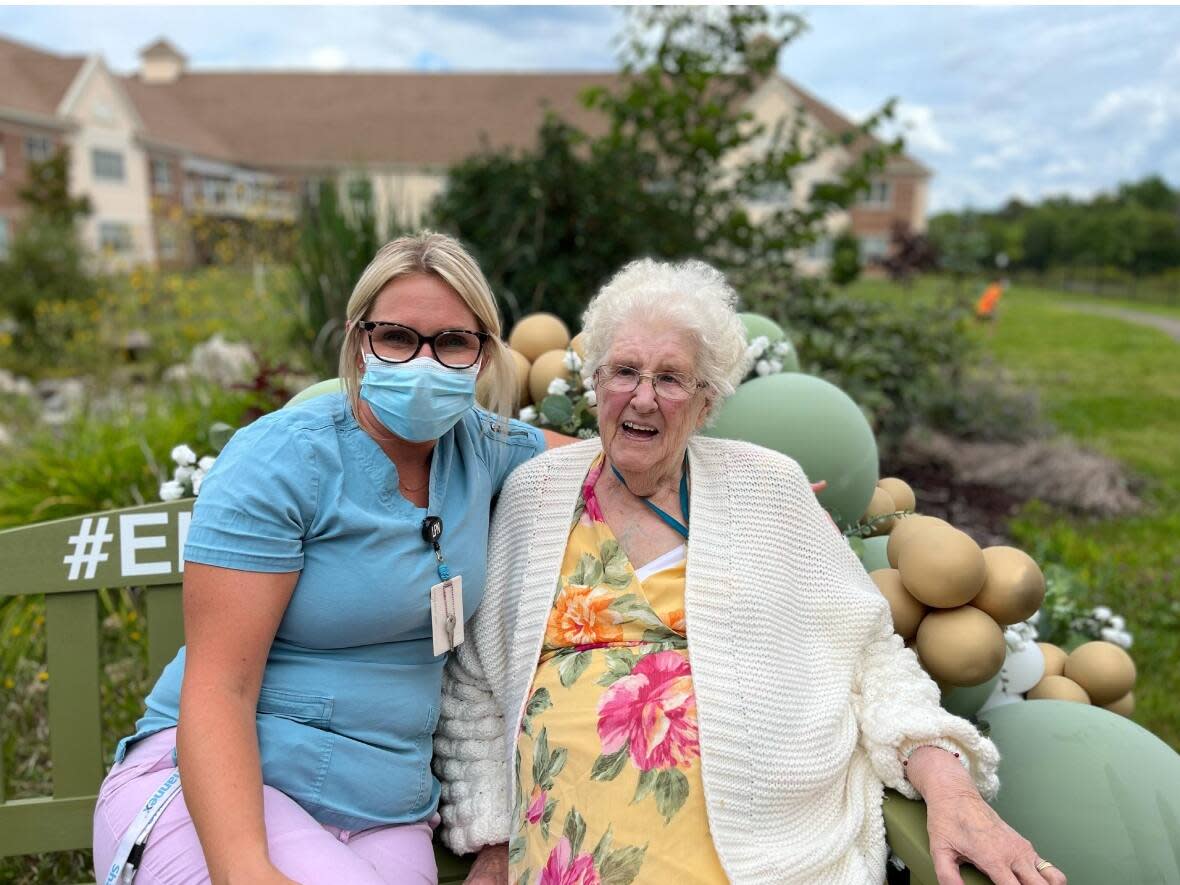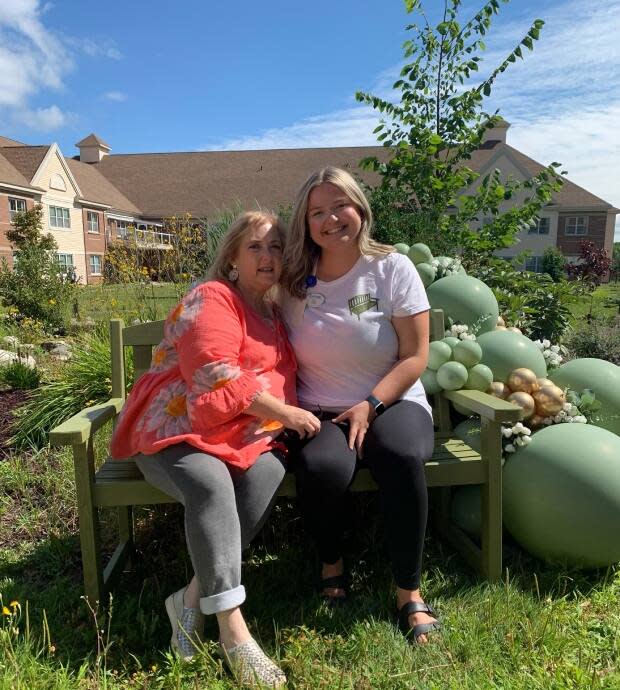A green conversation starter: A bench to get young and old talking

A three-year-old boy and a woman about 90 years old sat on the green bench talking.
About 40 other people of all ages were there too, gathered for the unveiling of the forest green bench etched with the word "#ElderWisdom" outside a Shannex home in Fredericton.
Nearby were activities including rock painting and a bouncy castle, with old tunes playing in the background to encourage conversation between young and old.
Getting the bench for the long-term care home was the work of Laura Baxter, who partnered with a national campaign that started in Ontario called #ElderWisdom. She wanted to bring it to New Brunswick.

The social movement involves a green bench meant to encourage older adults and people from younger generations to sit and engage in a meaningful conversation.
Baxter has worked in long-term care at Shannex and is the vice-president at the gerontology society at St. Thomas University. She said she has been exposed to the lives of older people for years now.
"I've just seen firsthand the impact that COVID-19 has had on older adults in our province, and this is a great way to combat social isolation."
Isabelle Landry, a spokesperson for Shannex, said the bench is a great addition.
"As people who have the privilege of being part of communities of elders, we appreciate the wisdom, experience and vibrancy seniors contribute throughout their lives. Initiatives like this remind everyone that our residents, and all seniors, have so much to offer to the communities around them."
Baxter said that conversation with older adults in the province can help humanize them more and combat ageism within society.
"They have careers, they have family, and they still have a lot to offer to our society," she said. "People are so quick to dismiss them and write them off, but they're still such valuable members of our society."
Baxter applied for federal funding through a Rising Youth grant.
The grant is awarded to young people who have ideas for taking action through youth-led community service.
"This certainly isn't a solution for our older adults in the province, but I felt like it was just kind of a step in the right direction in terms of how older adults are treated," she said.
The impact on the younger generation is the part that took Baxter by surprise at the unveiling. The turnout from younger people was higher than expected, and many more participated than she thought.
"I think it impacted the older adults as well, but I was shocked by the impact that it had on the youth."
The word elder in the project's name, said Baxter, is meant to recognize older age in general, but she also meant it as a reference to the role of Indigenous Elders in their communities.
"It is an Indigenous term too, and the land that we gather on is the traditional territory of the Wolastoqey and Maliseet," she said. "There's a lot of older adults too, especially in New Brunswick, who are from Indigenous communities."
The initiative is also active in Ontario. A green bench is stationed at the University of Waterloo, and a travelling version of the bench has made the rounds in Ontario.
"It was really nice and it all kind of came together. It was very special," said Baxter.


